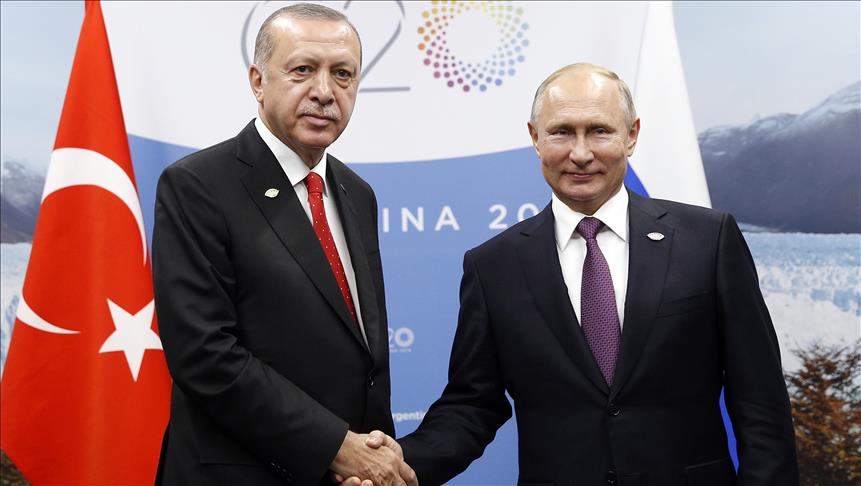Turkish President Recep Tayyip Erdoğan and Russian counterpart Vladimir Putin at the G20 summit, Buenos Aires, Argentina, December 1, 2018
UPDATE, 1345 GMT:
Turkish officials have met a delegation from the town of Jarjanaz in eastern Idlib Province, following almost two weeks of attacks by pro-Assad forces challenging the demilitarized zone.
The pro-opposition Nedaa Syria said the meeting was at Turkey’s observation post in the Sarman area.
Citing a “Turkish officer”, the site claimed blame of the Assad regime and Iranian-led forces for defying the Russian-Turkish agreement for the zone. The officer allegedly said that the Turkish military does not oppose “painful” retaliatory attacks on pro-Assad sites to deter further bombardment.
Pro-Assad units have been periodically shelling the periphery of the zone. Pro-opposition sources claims 25 people have been killed and dozens wounded in the Jarjanaz area.
Turkey has reiterated that Russia continues to stand alongside Ankara over a demilitarized zone around opposition-held northwest Syria.
President Recep Tayyip Erdoğan told journalists, before returning from the G20 summit in Argentina on Sunday, that Moscow does not have a “serious problem” over the status of the zone.
The area, 15 to 20-km wide and 100-km long around Idlib and northern Hama Provinces, was declared by Erdoğan and Russian President Vladimir Putin on September 17. The accord suspended an imminent Russian-regime offensive to overrun the last major opposition territory in Syria.
Moscow’s officials have declared that the zone is challenged by “extremists” but Erdoğan framed this with Turkish oversight of stability and security:
Turkey has so far pulled its weight in Idlib with its security forces and soldiers. There are only problems with HTS [the jihadist bloc Hay’at Tahrir al-Sham]. Due to this, they [Russia] have voiced some uneasiness. Our relevant units are in constant contact with each other.
Ankara is hoping to use rebel factions and political pressure to push back HTS, including defection of its fighters. The bloc took control of part of Idlib Province in 2017 after a battle with the rebel group Ahrar al-Sham.
Meanwhile, Turkey has consolidated opposition governance of much of the northwest, establishing a de facto no-fly zone and providing assistance for reconstruction, public services, and revival of the local economy.
Erdoğan said he told Putin at the G20 that they should hold another summit to discuss the situation in Idlib.
Kremlin aide Yury Ushakov said Putin met Erdoğan and German Chancellor Angela Merkel and discussed a summit including Germany and France — a sign of Russia’s desire to arrange aid for reconstruction of regime-held areas.
But Ushakov pushed back any immediate gathering, “There is only preliminary readiness of the three countries’ leaders for this meeting.”

